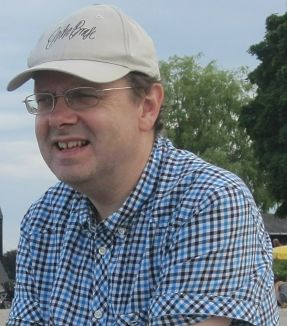Dr Colin Western was greatly admired internationally for his world-class expertise in the high-resolution spectroscopy of small molecules. His research linked fundamental studies of molecular structure to the use of molecular spectroscopy to probe the complex chemistry of combustion, plasmas, planetary atmospheres, and interstellar space. In particular, the PGOPHER program he created is used by many groups worldwide to analyse and interpret molecular spectra for numerous objectives spanning all these fields. PGOPHER is the most versatile, powerful, and user-friendly software package available anywhere for molecular spectroscopy simulation and analysis, and it is an extraordinary achievement. Colin tirelessly supported, and collaborated with, the international community of users of this software, many of whom are international leaders in their own fields, and he was always willing to add extra capabilities to the program to meet new research challenges. He also served the spectroscopy community as an Associate Editor of the Journal of Quantitative Spectroscopy and Radiative Transfer.
Prior to joining the University of Bristol, Colin obtained his doctorate in 1981 under the supervision of Prof Brian Howard at the University of Oxford, where he was both an undergraduate and postgraduate student at St John’s College. He then completed a very successful period of postdoctoral research with Prof Kenneth Janda at Caltech. Colin moved from California to the School of Chemistry in the mid-1980s as a research fellow, working with Prof Richard Dixon FRS. He then competed for and won a prestigious Royal Society University Research Fellowship to launch his independent career. Colin was appointed to a lectureship in the School of Chemistry in 1993, where he continued working until ill-health forced his early retirement in 2021.
Colin was a superb colleague who, beyond his research interests, was dedicated to teaching, laboratory demonstrating, and mentoring undergraduate students. He served in many roles, including Exams Officer, but it was through his extraordinary IT skills that he made perhaps his most significant contribution to the working life of the whole School. As part of the Bristol ChemLabS project to transform undergraduate practical teaching in Chemistry, Colin led the development of the Marks, Assessment and Feedback (MAF) system and the platform for running the Dynamic Laboratory Manual (DLM). For more than a decade, all undergraduates in Chemistry have benefited from the ease of access to these teaching resources, and the academic and professional services staff continue to use them routinely for the administration and delivery of teaching. Colin continued to manage and maintain these systems right up to this year. In 2015, he was awarded a University of Bristol Teaching Award in recognition of these achievements.
Colin was both a popular colleague among staff in the School, and greatly appreciated by the postgraduate and undergraduate students who learned so much from him. His gentle manner, his extraordinary intellect, and his profound understanding of molecular spectroscopy made him someone many people ranging from undergraduates to Professors turned to for advice. As our numerous joint publications with Colin show, we both relied heavily on his expertise to help interpret challenging laser spectroscopy measurements from our own research laboratories, and we hold his scientific achievements in the highest regard. Colin was a quiet and retiring character, so we always took a particular pride in seeing conference talks from leading researchers across the world that highlighted analysis of their spectra using his PGOPHER code. Colin had an understated sense of humour, and we privately smiled at his quirky choice of name for such a sophisticated software package. His contributions to the School, the University, and the wider research community over more than 30 years show exceptional dedication, and he will be greatly missed.
